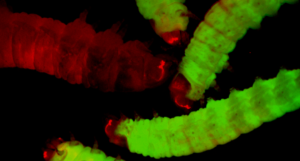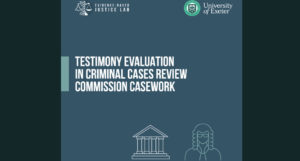Public aware of and accept use of bacteria-killing viruses as alternative to antibiotics, study shows

The public are in favour of the development of bacteria-killing viruses as an alternative to antibiotics – and more efforts to educate will make them significantly more likely to use the treatment, a new study shows.
The antimicrobial resistance (AMR) crisis means previously treatable infections can kill. This has revitalised the development of antibiotic alternatives, such as phage therapy, which was first explored over a century ago but abandoned in many countries in favour of antibiotics.
The study shows public acceptance of phage therapy is already moderately high, and priming people to think about novel medicines and antibiotic resistance significantly increases their likelihood of using it.
There is a higher acceptance of phage therapy when described without using perceived harsh words, such as “kill” and “virus” but instead “natural bacterial predator”.
Those who took part in the survey had a high awareness of antibiotic resistance – 92 per cent had heard of antibiotic resistance, but only 13 per cent reported that they had heard about phage therapy prior to the survey.
Success and side effect rate, treatment duration, and where the medicine has been approved for use, influenced their treatment preferences.
The study was conducted by Sophie McCammon, Kirils Makarovs, Susan Banducci and Vicki Gold from the University of Exeter.
Dr Banducci said: “While phage therapy remains poorly understood by the UK public our research suggests there is extensive acceptance and support for its development. Exposure to only very limited information about antibiotic resistance and alternative treatments to antibiotics greatly increases the public acceptance of phage therapy.”
Dr Gold said: “Those involved in the research wanted to know more about phage therapy and were inspired to research this topic after completing our survey. Exposure to only a very limited amount of information about phage therapy significantly increases acceptance.”
Researchers held a workshop with experts and a review of phage research. They also fielded a survey assessing the UK public’s acceptance, opinions and preferences regarding phage therapy. A total of 787 people completed the survey, distributed in December 2021.
One group was given two scenarios; in the first they presented with a minor infection, and in the second they presented with an infection that did not respond well to antibiotics for three months. In each scenario, the group ranked the selected attributes based on their importance in deciding whether to accept a treatment or not.
Participants were randomly assigned one of four descriptions of phage therapy and then surveyed to assess their acceptance of the treatment. The acceptance of phage therapy was high across the board. However, describing phage therapy using perceived harsh words, such as “kill and “virus”, resulted in lower acceptance rates than alternative descriptions. Additionally, participants who had recent exposure to information about antibiotic resistance and alternative treatments were more accepting of phage therapy.
From the 787 participants who completed the survey, 213 left written responses expressing their opinions on the potential of phage therapy. Of this group, 38 per cent showed a specific interest in phage therapy development, while a further 17 per cent supported the development of antibiotic alternatives generally.
Sophie McCammon said: “An advantage of phage therapy is often the minimal side effects. Emphasising this through education and marketing may increase public acceptance of phage therapy.
“Even though phage therapy may be some years away from routine clinical use in the UK, increasing pressures from the AMR crisis require evaluation of the UK public’s acceptance of alternative treatments.
“The public desire for increased education is apparent. Expanding schemes which are interactively involving children in phage research not only generates excitement for the therapy now, but also promotes awareness in the generation likely to be treated with antibiotic alternatives.”



